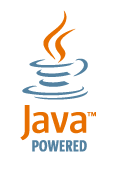Techsol Celebrates a Decade of ARM Designs
Techsol has been designing Computers powered by ARM processors for 10 years!
Delta, British Columbia, Canada - September 30, 2009
Techsol has been designing low-power computers based on a variety of ARM processors since 1999. Starting with a commercial, hard-drive-based MP3 player design (2 years before the 1st iPod) and progressing through a variety of projects. "That first design used Cirrus Logic's ep7312 when the chip was brand new. We were trying to run on a single SDRAM, but the memory controller only worked on a 32-bit bus. CL's engineers only tested with 2 SDRAMs, so the HW bug wasn't found for weeks. In the end, we got it working, including an option to run the audio from the PLLs. We provided Cirrus with corrections to their datasheets, as well as an App Note on how to clock the audio internally." notes Brian Empey, founder and CEO of Techsol.
The long and expensive development of that product prompted Techsol to develop the Medallion CPU module as a tool to reduce development time, cost, and risk. At the time, creating a 50mm square computer with a 32-bit expansion bus, full video (LCD and VGA signals) plus Audio and USB was pretty radical. "The MP3 player ran Kadak's AMX RTOS on the 7312. It was stunningly fast, especially coming from 25 MHz 186 designs. But the SW options in AMX are limited, especially for GUIs." So after pondering the future of both embedded HW and SW, it was decided that HW was moving to ARM processors, and SW would most likely migrate to Linux. "Packaging a Linux-powered ARM computer into a small form-factor looked like a great way to help other product developers leap-frog the huge learning-curves associated with both technologies. Plus, we continue to design products for customers, but now they're all Medallion-powered, which dramatically reduces development time."
Development of the 1st Medallion CPU module started in 2000. The processor chosen was unusual: an ARM 720T based Hynix (Hyundai) chip with both LCD and VGA controllers on board. However, the chip looked perfect for wearable computers, one of the company's areas of interest. Protos were working in 2001, and the 1st dev.kits shipped in 2002. "Creating a Linux BSP for an unsupported processor, including boot loaders, is an onerous task. But we worked from datasheets up with the CL7312, so we already had experience with MMUs and ARM's processor architecture, which eased development — not that we'd ever want to do that again."
The HY7201 was followed by the SA2410, an ARM9 using a Samsung processor and running Linux 2.6.x. The SA2410 has been through about 10 revisions in order to keep everything current. And the pin-out of the module hasn't changed. Techsol's #1 focus is "planned non-obsolescence" which means putting out new products that plug into customer's old designs. "Our strict backwards compatibility is what really saves our customers money. That and our deep Linux experience and dedication to supporting the HW with piles of SW. Our customers typically don't even have Linux-driver-capable developers on staff -- they just concentrate on applications. We take care of the low-level details for them. We even pre-load the customer's image onto the products after testing every one running the latest Linux distribution."
This strategy has worked well: Techsol's customers are fiercely loyal to the company in exchange for the engineer's "we'll take care of it" attitude! With many tens of thousands of CPU modules shipped (almost all newer designs have both touch screens and Ethernet), and design wins ranging from Automotive to FDA-Approved medical devices, with commercial, defense, and industrial customers in the mix too, the Medallion CPU module is probably the longest-running miniature Computer-On-Module (COM) form factor available.
Going forward, there are yet more SA2410 variants in the works, an OMAP board in layout, and newer ARM-926 processors in the pipeline. The next 10 years of ARM technology look as exiting as the first 10!
Embedded Engineering is the same all over the world. Engineers face the same
challenges of having too much to do, and not enough time or money to do it
with. Techsol's Medallion CPU modules address this issue
and provide a solution that extends into the production stages of a
product, not just the proof-of-concept stage like most SBCs.
Techsol's Medallion system is unique in the embedded computer world. The Medallion Single-board computer product line encompasses multiple CPUs, and different configurations with the same CPU. However, the pin-out and form-factor remain the same. There is one Medallion module that is best matched to your application.
By designing with the Medallion system, you are effectively out-sourcing your CPU design and Linux porting with no up-front NRE fees! That lets your team concentrate on the hardware and software portions of your product that your customers see. The result is that you can create a higher-quality product in a fraction of the time (and cost) of designing everything yourself from scratch! Plus, the interchangeable modules extend product life-cycle times.
For more details, or to request further information, please visit our Web site
at <medallionsystem.com>,
call 888 TECHSOL (888 832 4765) or 604 946 8324, or e-mail
<sales@techsol.ca>.
Techsol is headquartered in Delta, British Columbia, Canada, where the mighty Fraser River meets the Pacific Ocean.






